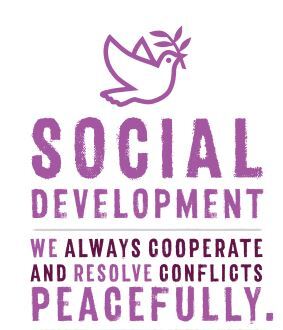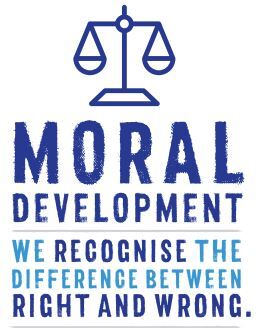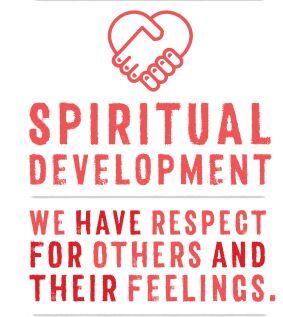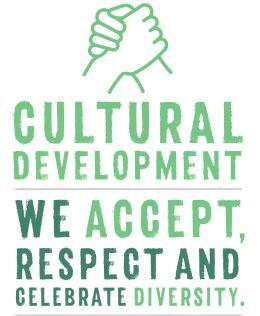- Home
- Key Information
- SMSC and Fundamental British Values
SMSC and Fundamental British Values
At CJCA we are fully committed to improving our students’ Spiritual, Moral, Social and Cultural (SMSC) mindfulness. The areas of SMSC are fully embedded into our Values and Expectations. We seek to equally support the students’ academic achievement alongside developing their broader character. All students at KS3 study one lesson of Religious Education and one lesson of PHSCE each week and at KS4 students have one lesson a week of Citizenship. We also have weekly assemblies for each year group and daily form time which cover key topics and give chance for discussion.
Students who meet our Values and Expectations and demonstrate excellence are celebrated through our PDFL system by gaining stamps in lessons, getting board of excellence recognition and through nominations from staff which are shared in assemblies and on our social media platforms.
All subject areas contribute to this provision: modelling the Academies Values and Expectations, having high expectations of students behaviour & conduct in lessons and around the Academy, following the PDFL policy & systems, offering extra-curricular provision and developing Cultural Capital through delivery of well-planned subject curricula.
There are four specific areas to SMSC:
Spiritual
This encompasses our school value of being respectful of each other and our feelings. Students broaden their imagination and creativity whilst at CJCA alongside understanding other people’s beliefs and values.
Moral
At CJCA we always encourage students to recognise the difference between right and wrong, as well as understanding that negative actions have consequences. Students also spend time investigating ethical issues through the well balanced curriculum.
Social
Students adhere to the Values and Expectations of the Academy, participating in school activities beyond the school day as well taking part in work in the local community.
Cultural
Our students are inspired to accept, respect and celebrate diversity. They learn to appreciate difference and develop their understanding of different cultures in the South Leeds area and beyond. At CJCA our school community is made up of speakers of 45 different languages and we welcome the rich culture and diversity this brings.
 |
 |
 |
 |
Fundamental British Values
Our students understand the five key values of democracy, rule of law, mutual respect, individual liberty and tolerance, the curriculum as well as enrichment activities support this. Student planners detail all five areas and they are covered at length within the PSHCE/RE curriculum.
Subject teachers all have a role to play in modelling and promoting both SMSC and MBV every day, they do this in a variety of ways. The majority of work is completed within the extensive PSHCE/Citizenship and Religious Education curriculum but all subject areas support the strands.
We are committed to providing independent careers advice to all students and work closely with local colleges and businesses to ensure students remain in Education, Employment or Training when they leave CJCA. We work with the Leeds Enterprise Partnership to secure exciting opportunities for our young people around employability skills such as work within different sectors. We also work with Go Higher West Yorkshire to ensure that higher education in all its forms is open to all who can benefit, regardless of background. Additionally, we have business links with Harrison Spinks and we are launching the PTech qualification in the UK working closely with IBM. Our students have regular contact with businesses, through the assembly programme, internal workshops and events and a dedicated careers week.
We have an assembly rota which closely focuses on all areas of SMSC and FBV covering topics that are relevant to young people today. We invite guest speakers from local colleges and businesses to allow students to hear a range of voices around the issues that relate to them. We cover issues such as fire safety, anti-bullying, reading for pleasure, armistice week and always promote the Values and Expectations of the Academy.
Each year we also nominate, vote for and elect a Head boy and Head girl in Y11. These students are required to write an application which is countersigned by two members of staff, they are then invited to interview followed by a presentation to staff and students. Then all stakeholders in the school vote in a system which models the way we vote as a country in national elections, with ballot slips, booths and counting systems. This is an essential part of understanding how voting can change the way the country is run, at CJCA we have form and year group representatives who work together to impact on change by representing the views of themselves and their peers on the Academy Council.
Examples from subject areas:
In Music we explore the music of a variety of cultures and traditions. We also look at the deeper meaning behind song lyrics and certain genres for example connecting Blues to the slave trade. Students are encouraged to work with others and respect each other’s opinions.
Geography covers a wide range of SMSC issues. This begins in Y7 where students study the Horn of Africa. Students are encouraged to understand that people’s lives can vary massively depending on their geographical location. In Y8 as part of the Asia topic, students study the living conditions facing some people in the favelas, and think about how different their lives are in comparison. At KS4, students consider how hazards are managed in both LICs and HICs. We look at how different geographical phenomena impact upon peoples’ lives and how situations are dealt with in different parts of the world. In KS4 we look at this in more detail, and focus on issues like the north-south divide in the UK and the challenges facing people in some major UK and world cities.
Students also have PSHCE/Citizenship lessons alongside a robust RE curriculum where controversial topics are studied in order to enthuse and stimulate emotion in their learning. Students study the six major world religions in RE as well as ultimate questions such as can God possibly exist? They also examine issues that are prevalent in the 21st Century such as capital punishment and war which they study at KS4. Students also take part in lessons around growing up and relationships in their PSHCE lessons. They look closely at the risks connected to taking drugs- both legal and illegal forms, sex education, anti-extremism alongside prejudice and discrimination. Students also study anti-extremism looking at preventing young people from turning to extremist groups to get their voice heard.
Science covers a number of topics that consider ethical questions, for example, we have the scientific theory and technology to genetically modify an organism’s genome, but is it right to do so? We recognise that culture, background, and religion lead to people having different views and encourage students to make their own conclusions using evidence. Through Biology units, students study about the body and how it responds to both external and internal factors and students show great enthusiasm to learn about themselves in this context. The scientific theory of the importance of biodiversity in an ecosystem is studied and gives a different view of celebrating diversity. In Physics we study the forces of motion, kinetic energy, and braking distances of cars to better understand the need to have speed limits laws and how lifestyle choices can affect a person’s reaction times, thus inhibiting their ability to drive safely.
Click here for our Extremism and Radicalisation Policy.